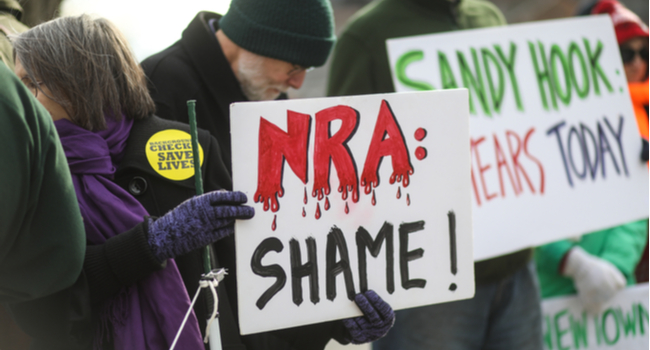
Gun Manufacturer Could be Held Liable for Sandy Hook Shooting
The Supreme Court refused Tuesday to shield a major arms manufacturer from potential liability in the 2012 school shooting that left 26 students and educators dead in Newtown, Connecticut.
- By Sherelle Black
- November 12, 2019
The Supreme Court denied an appeal Tuesday from Remington Arms Co., the maker of the rifle used in the Sandy Hook Elementary School shooting, that would have shielded them from potential liability from the shooting.
The Connecticut Supreme Court ruled 4-3 in March that Remington can be sued because of the way the AR-15-style Bushmaster rifle was marketed.>
With the appeal being denied, the survivor and relatives of nine of the 26 students and educators who died can now move their lawsuit against the manufacturer forward at the state level.
The lawsuit, which was filed by parents of Sandy Hook Elementary School victims, alleges that Remington Arms Co. marketed the military-style rifle used in the mass shooting "for use in assaults against human beings."
PBS reported the lawsuit also alleges that the North Carolina-based company targets young, at-risk males with their marketing.
In the appeal, Remington argued they were protected by a 2005 law passed by Congress to protect firearms manufacturers from being held liable for crimes committed by gun purchasers.
That law was hailed by the National Rifle Association, but it included exceptions, including one for violating rules related to marketing and advertising.
NRA was among those hoping that the appeal would be approved, according to PBS.
About the Author
Sherelle Black is a Content Editor for the Infrastructure Solutions Group at 1105 Media.